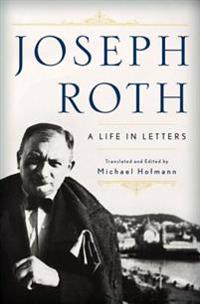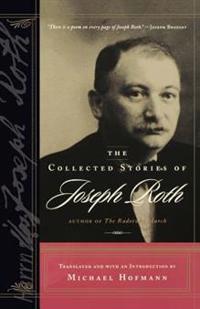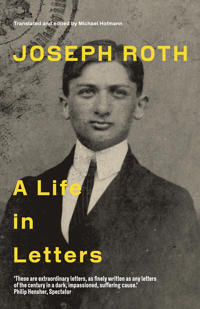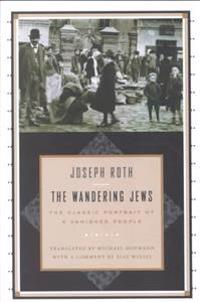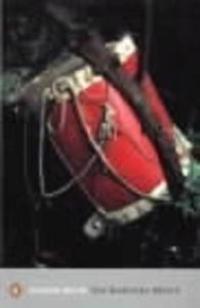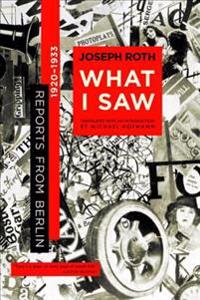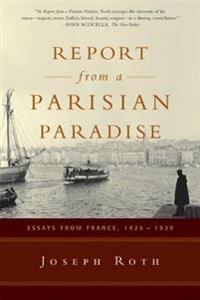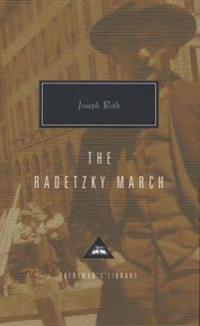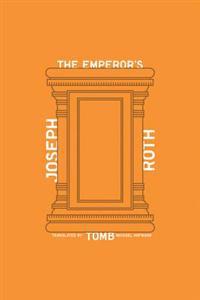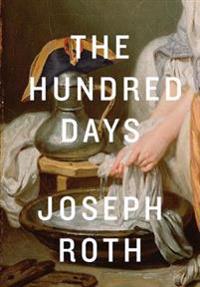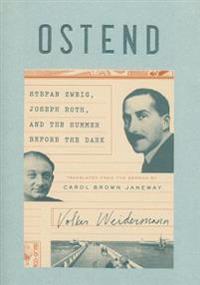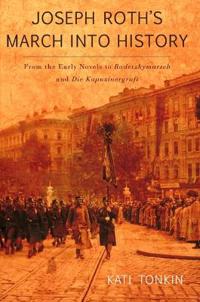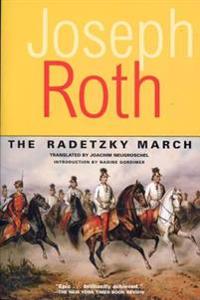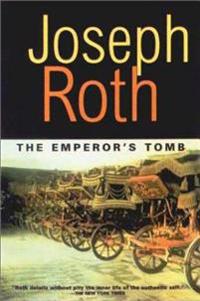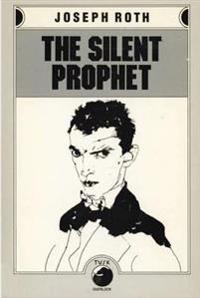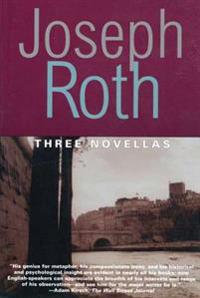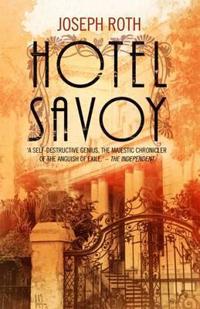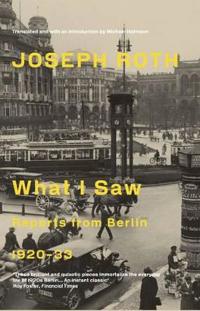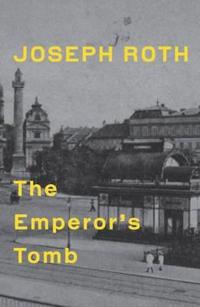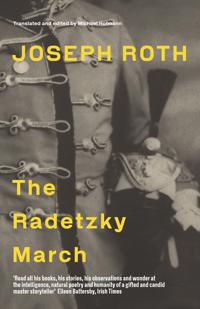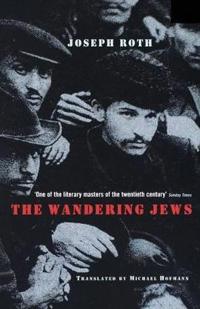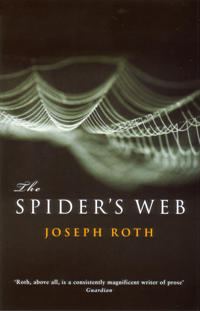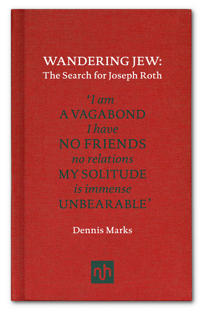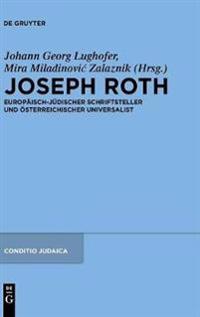Joseph Roth (Inbunden)
avJoseph Roth, Michael (EDT) Hofmann, Michael (TRN) Hofmann
ISBN: 9780393060645 - UTGIVEN: 2012-01Who would have thought that seventy-three years after Joseph Roth s lonely death in Paris, new editions of his translations would be appearing regularly? Roth, a transcendent novelist who also produced some of the most breathtakingly lyrical journalism ever written, is now being discovered by a new [...]
The Collected Stories of Joseph Roth (Häftad)
avJoseph Roth
ISBN: 9780393323795 - UTGIVEN: 200306Appearing for the first time in English, an anthology of short stories and novellas spans the author's entire writing career and includes many recently discovered works, including "Strawberries," as well as such novellas as Stationmaster Fallmerayer and The Bust of the Emperor. Reprint.[...]
Joseph Roth (Häftad)
avJoseph Roth
ISBN: 9781847083418 - UTGIVEN: 201301The legendary Austro-Hungarian novelist and essayist, Joseph Roth, was born in Ukraine in 1894 and died tragically in Paris in 1939. These letters span the breadth of Roth's life, from his schoolboy years to the veteran of 44, marked by war, poverty, alcoholism, the loss of his wife through madness,[...]
The Wandering Jews (Pocket)
avJoseph Roth, Michael Hofmann, Joseph Roth
ISBN: 9780393322705 - UTGIVEN: 200111Every few decades a book is published that shapes Jewish consciousness. One thinks of Wiesel's Night or Levi's Survival in Auschwitz. But in 1927, years before these works were written, Joseph Roth (1894-1939) composed The Wandering Jews. In these stunning dispatches written when Roth was a correspo[...]
The Radetzky March (Storpocket)
avJoseph Roth
ISBN: 9780141185279 - UTGIVEN: 200012Strauss' Radetzky March, signature tune of one of Europe's most powerful regimes, presides over Joseph Roth's account of three generations of the Trotta family in the years preceding the Austro-Hungarian collapse in 1918. Grandfather, son and grandson are equally dependent on the empire: the first f[...]
What I Saw (Häftad)
avJoseph Roth
ISBN: 9780393325829 - UTGIVEN: 200409The Joseph Roth revival has finally gone mainstream with the thunderous reception for "What I Saw," a book that has become a classic with five hardcover printings. Glowingly reviewed, "What I Saw" introduces a new generation to the genius of this tortured author with its "nonstop brilliance, irresis[...]
Report From A Parisian Paradise (Pocket)
avJoseph Roth, Michael Hofmann, Michael Hofmann
ISBN: 9780393327168 - UTGIVEN: 200508Follows the eminent European newspaper correspondent's near-prophetic perceptions of a European order that would enable a transcendental world of beauty and promise. Reprint.[...]
The Radetzky March (Inbunden)
avJoseph Roth, Alan Bance
ISBN: 9780679451006 - UTGIVEN: 1996-10By one of the most distinguished Austrian writers of our century, a portrait of three generations set against the panoramic background of the declining Austro-Hungarian Empire. Translated by a three-time winner of the PEN Translation Prize.[...]
The Emperor's Tomb (Häftad)
avJoseph Roth
ISBN: 9780811221276 - UTGIVEN: 2013-04The Emperor's Tomb - the last novel Joseph Roth wrote - is a haunting elegy to the vanished world of the Austro-Hungarian Empire, and a magically evocative paean to the passing of time and the loss of hope. The Emperor's Tomb runs from 1913 to 1938, from the eve of one world war to the eve of the ne[...]
The Hundred Days (Inbunden)
avJoseph Roth
ISBN: 9780811222785 - UTGIVEN: 2014-11Set during the infamous period between Napoleon s escape from Elba and his second defeat and recapture at Waterloo, The Hundred Days describes the great Emperor s last shot at glory and his final transformation from a godlike ruler into an ordinary, humble man. Roth frames the novel through the pers[...]
Ostend: Stefan Zweig, Joseph Roth, and the Summer Before the Dark
ISBN: 9781101870266 - UTGIVEN: 2016-01It s the summer of 1936, and the writer Stefan Zweig is in crisis. His German publisher no longer wants him, his marriage is collapsing, and his house in Austria searched by the police two years earlier no longer feels like home. He s been dreaming of Ostend, the Belgian beach town that is a paradis[...]
Joseph Roth's Marching into History
ISBN: 9781571133892 - UTGIVEN: 2008-10Joseph Roth was one of the most significant German-language writers of the interwar period, yet few major studies of his work have been published in English. Kati Tonkin's monograph spans Roth's novelistic career, challenging the widely held assumption that his writing can be divided into an early "[...]
The Radetzky March (Häftad)
avJoseph Roth, Nadine Gordimer
ISBN: 9781585673261 - UTGIVEN: 200208"The Radetzky March," Joseph Roth's classic saga of the privileged von Trotta family, encompasses the entire social fabric of the Austro-Hungarian Empire just before World War I. The author's greatest achievement, "The Radetzky March" is an unparalleled portrait of a civilization in decline, and as [...]
The Emperor's Tomb (Häftad)
avJoseph Roth
ISBN: 9781585673278 - UTGIVEN: 200209"The Emperor's Tomb" is a nostalgic, haunting elegy for the end of youth and the last days of the Austro-Hungarian Empire. A continuation of the saga of the von Trotta family from The Radetzky March, it is both a powerful and moving look at a decaying society and its journey through the War and its [...]
Three Novellas: The Legend of the Holy Drinker, Fallmerayer the Stationmaster and the Bust of Th (Häftad)
avJoseph Roth
ISBN: 9781585674480 - UTGIVEN: 2003-10The Legend of the Holy Drinker" tells the haunting story of a dissolute vagrant who is uplifted for a short time by a series of miracles. Written in the final days of Roth's life, it is a novella of sparkling lucidity and humanity. "Fallmerayer the Stationmaster" and "The Bust of the Emperor" are Ro[...]
Hotel Savoy (Häftad)
avJoseph Roth
ISBN: 9781843913863 - UTGIVEN: 201306After the end of the First World War, Gabriel Dan is released from a POW camp in Russia and begins making his way home to Austria. He comes to an industrial town in Poland, and checks in the ramshackle Hotel Savoy while awaiting financial aid from his family. Here he meets a kaleidoscope of characte[...]
What I Saw (Häftad)
avJoseph Roth
ISBN: 9781847081971 - UTGIVEN: 2004-04In 1920, Joseph Roth, the most renowned German correspondent of his age, arrived in Berlin, the capital of the Weimar Republic. He produced a series of impressionistic and political writings that influenced an entire generation of writers, including Thomas Mann and the young Christopher Isherwood. R[...]
Emperor's Tomb (Häftad)
avJoseph Roth
ISBN: 9781847086129 - UTGIVEN: 2013-11A new translation by Michael Hofmann of one of Roth's most acclaimed novels; an elegy to the vanished world of the Austro-Hungarian Empire.[...]
The Radetzky March (Häftad)
avJoseph Roth
ISBN: 9781847086143 - UTGIVEN: 201301The Radetzky March is a meditation on the Austro-Hungarian Empire through the prism of three generations of the Trotta family. The novel opens in 1859 at the Battle of Solferino, when the young Lieutenant Trotta saves the life of the Emperor and is ennobled. He owes the Empire everything, and his so[...]
The Radetzky March (Inbunden)
avJoseph Roth
ISBN: 9781857151978 - UTGIVEN: 1996-09This is a subtle & touching study of family life at the end of the Austro-Hungarian Empire. Roth manages to write in the form of the traditional family saga but at the same time giving it an individual manner & the wider pan orama of a failing dynasty '[...]
Wandering Jews (Häftad)
avJoseph Roth
ISBN: 9781862074705 - UTGIVEN: 2001-10The first English translation of Joseph Roth's portrayal of the vanished world of East European Jewry: their poverty, communities and trades, their feast days and the mysticism of their rabbis.[...]
Spider's Web (Häftad)
avJoseph Roth
ISBN: 9781862076761 - UTGIVEN: 2004-11In "The Spider's Web", his first novel, Roth paints a chillingly realistic picture of the conspiracies of the radical right that were to undermine the Weimar Republic and pave the way for Hitler and National Socialism.[...]
Joseph Roth: Europaisch-Judischer Schriftsteller Und Osterreichischer Universalist (Inbunden)
avMira Miladinovic Zalaznik, Johann Georg Lughofer
ISBN: 9783110265040 - UTGIVEN: 201109On the 70th anniversary of Joseph Roth s death, this volume examines the current relevance of his work. His works and opinions were regarded as being overly oriented towards the past; his leanings towards the monarchy were mocked, his call to supranational thinking interpreted as a simple response t[...]

